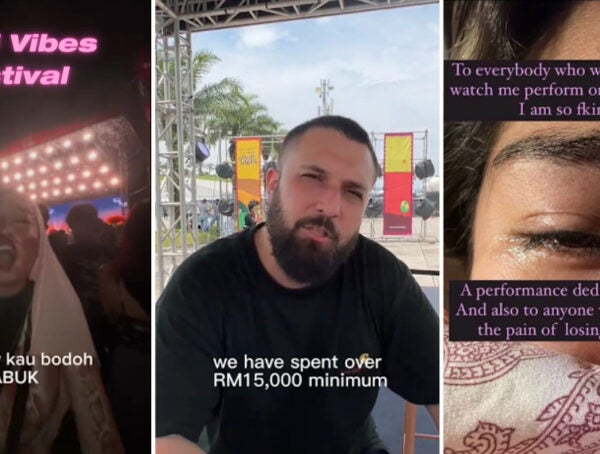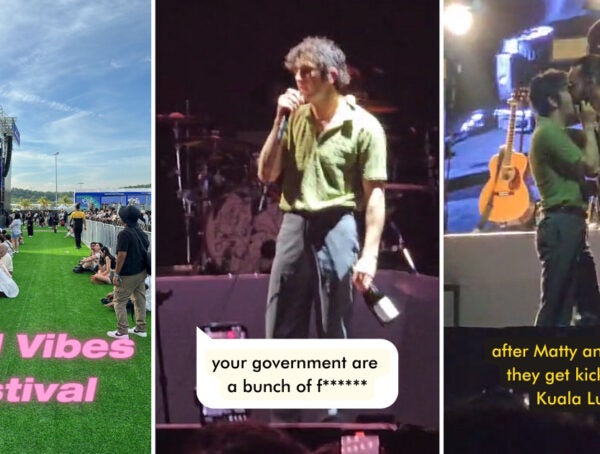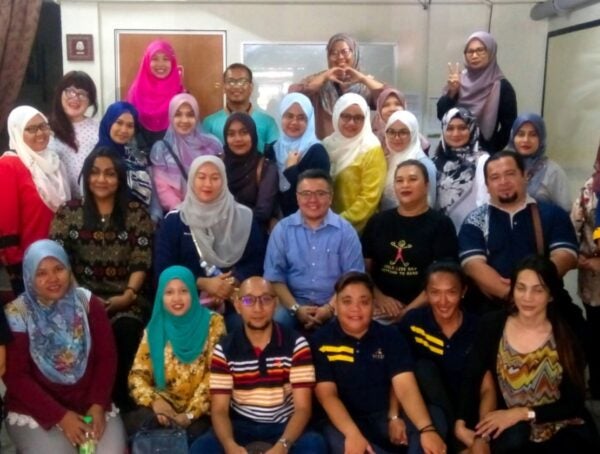Disclaimer: In Real Life is a platform for everyday people to share their experiences and voices. All articles are personal stories and do not necessarily echo In Real Life’s sentiments.
Ever since I was a child, I have always loved performing and entertaining. I enjoyed dressing up and going to karaoke; my childhood consisted of binge-watching MTV, especially Lady Gaga shows. They were always so theatrical.
But the thought of becoming a performer never crossed my mind. If you told me as a child I was going to be a drag queen, I would laugh in your face and walk off.
I used to be a shy kid and have stage fright. I’d never performed in front of a big crowd, only with people with who I am comfortable.
When I went to secondary school, I thought, “Screw it,” and decided to join a singing competition. It was tough putting myself out there but I wanted to push and challenge myself.
I slowly started to gain confidence, but still — becoming a performer was something I never thought about.
It was Halloween 2016.
I was at a queer-friendly party with my friends. These aren’t parties where you just show up at your friend’s house. They’re well-organised queer-friendly events, usually set in clubs or bars with a space rented out for private functions, where people pay to dress up in drag and watch performances by their favourite drag queens.
So that night, the event founder approached me.
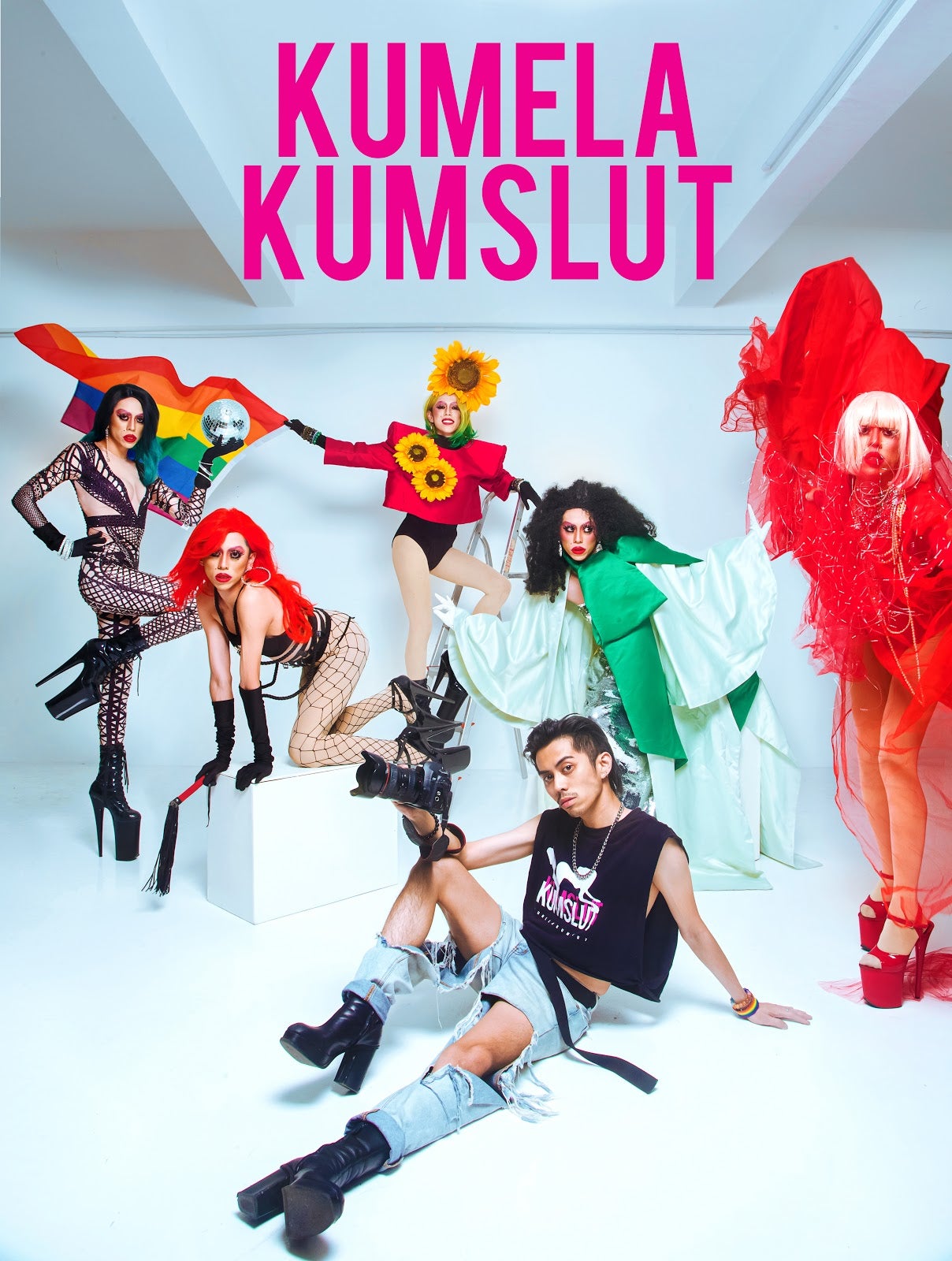
Taken by daniel adams photography
He asked me, “Do you want to host and perform at my future parties?”
I was taken back. The MCs of these events are usually drag queens with an incredible stage presence. If I really did this, one, it would be the first time in my life going out in drag, and two, it would be the first time I hosted or performed an event, especially in a club.
I was scared, but at the same time I thought to myself, ‘this is my one chance to perform in drag and not be judged for it.’
So I accepted the offer to perform and host the events. It was my first time wearing drag and it gave me a sense of confidence I have never felt before in my life. Other than tucking, (a process of hiding my private parts so that there isn’t any bulge) and my feet hurting from dancing in my 10-inch heels for hours, it had no downsides.
Every drag queen has a stage name. I chose the name Kumela Kumslut. I know it’s rude and shocking, but that’s the point. Malaysia is very uptight about sexuality, so for it to be right there in my name is meant to shock people out of their comfortable lives.
My fashion icon for Kumela Kumslut is Lady Gaga. She isn’t a drag queen but her fashion aesthetic is something that always inspires me.
That night, the confidence came out of nowhere. To others, they may only have seen the makeup and wigs but to me, it was like something lit up inside of me. It is such an unexplainable feeling.
Just being in the fishnet stockings and colourful wigs made me feel so elevated and empowered. I feel liberated, like I could conquer the world.
Every month since, I have hosted and performed in shows until the pandemic hit.
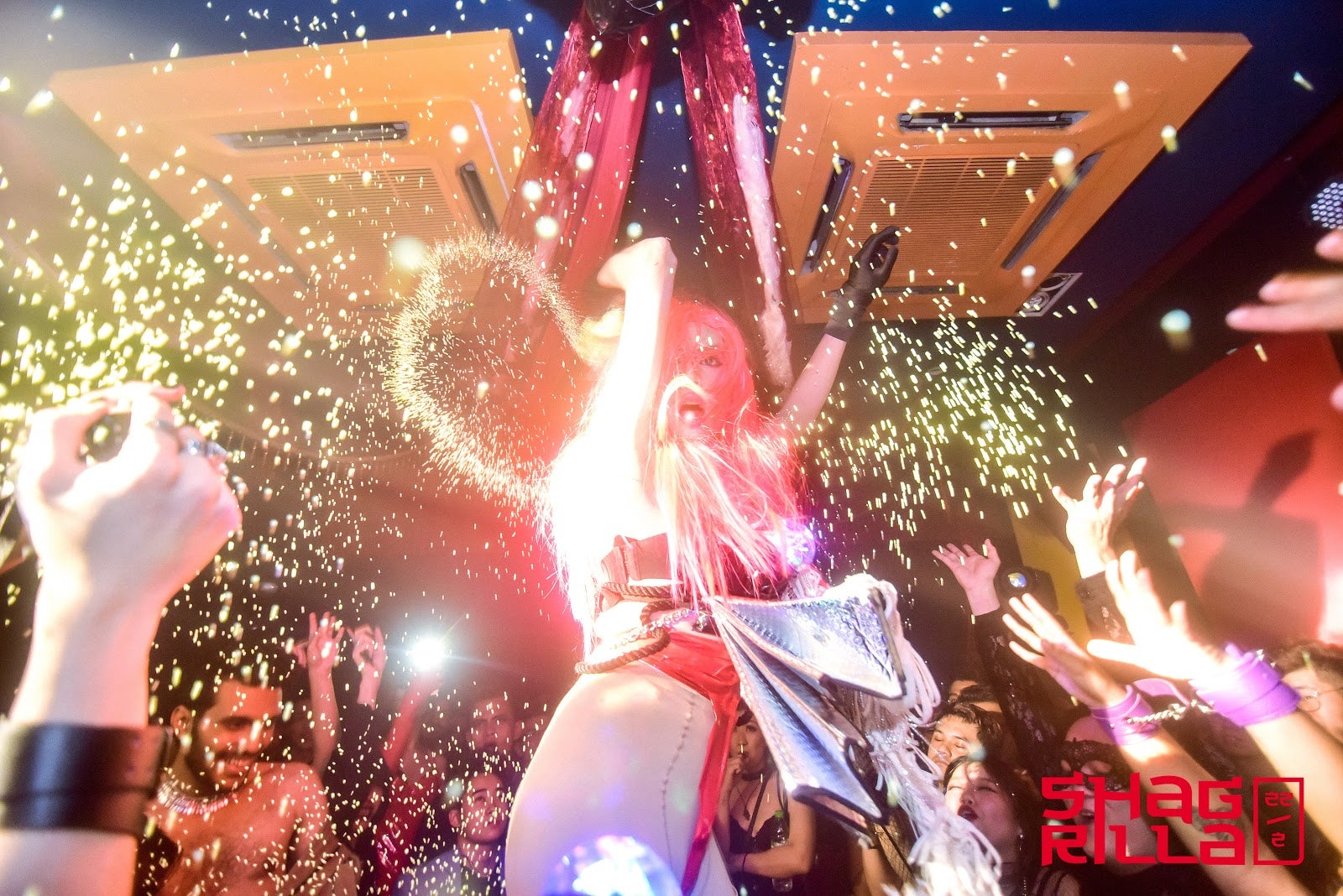
Taken at shagrilla
The history of drag queen culture in Malaysia
Drag is one of the cultural criterion that’s always been breaking conventional barriers and pushing queer visibility into the mainstream through performance art, fashion and music. It has come a long way since its underground days.
In the US, RuPaul made drag mainstream but in Malaysia, we have Shelah, a pioneer of the Malaysian drag culture and a committee member of the LGBT movement.
In 2019, Zee Avi, a local singer invited me to be part of her music video alongside some other queer personalities. So from this, you can see that international acceptance is slowly influencing the pop culture in Malaysia to normalise drag and queer performers.
For those who say that this is a bad influence from the West, did you know that drag performers have existed since the 80s and 90s in Malaysia?
You’ve seen them in local productions, but you’ve just been normalised to accept them. They’re usually the comic relief, and even local comedians like Kumar does his stand-up comedy in drag.
In fact, drag has existed in multiple cultures all around the world, in Shakespeare, and East Asian traditional theatre.
Being a drag queen made me grow so much.
As humans, we have a little voice in our head, criticising ourselves constantly. “You’re not good enough/smart enough/hot enough.” Through drag, I have realised what is truly important about myself.
I have always focused on the negatives about myself, I became my biggest enemy. It was difficult to process my flaws. At one point, I resorted to alcohol, partying every weekend, and drinking everyday.
But the confidence drag gave me, helped me make so many friends. I started looking at it from a more positive perspective, it helped me embrace myself.
I am very lucky because I had a great support system from my friends and some of my family. My friends and my partner have always believed in me and supported me.
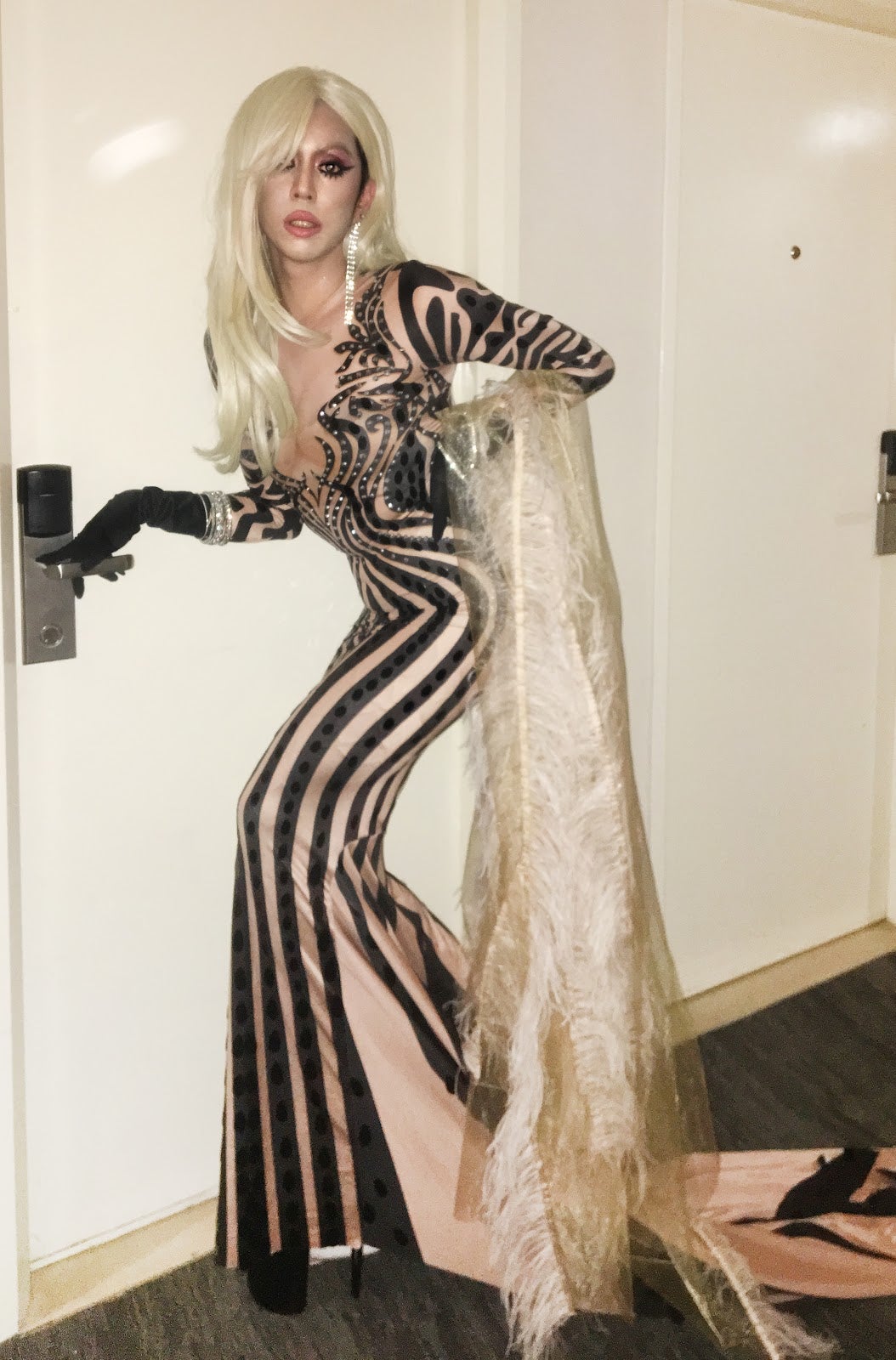
Taken on haus of rn
My siblings are also very supportive about it. She has even attended one of my shows. However with my parents, I have never outright told them, but I think they know.
They see my 10-inch heels and wigs but don’t say anything. It’s just an unspoken topic between us.
They used to make comments like, “Why is your hair like that?” or “Why are you wearing that,” whenever I dressed feminine but as they got more used to it, they didn’t say anything.
Nowadays, when I dress more casually and wear sweatpants, they ask me “Why am I not dressed up?”
If they ask me about my sexuality, I would be frank with them and tell them everything. But they haven’t, so I don’t plan to bring it up either until they do.
My drag queen persona helped me accept my own sexuality
As a young child, I realised I was gay when I was in primary, but only accepted it when I was in high school. Still, I was uncomfortable about being out, because being gay is looked down on in Malaysia.
When I started drag, it made me realise I had nothing to be ashamed of, and I should embrace my sexuality and my insecurities. It made me understand and love myself better.
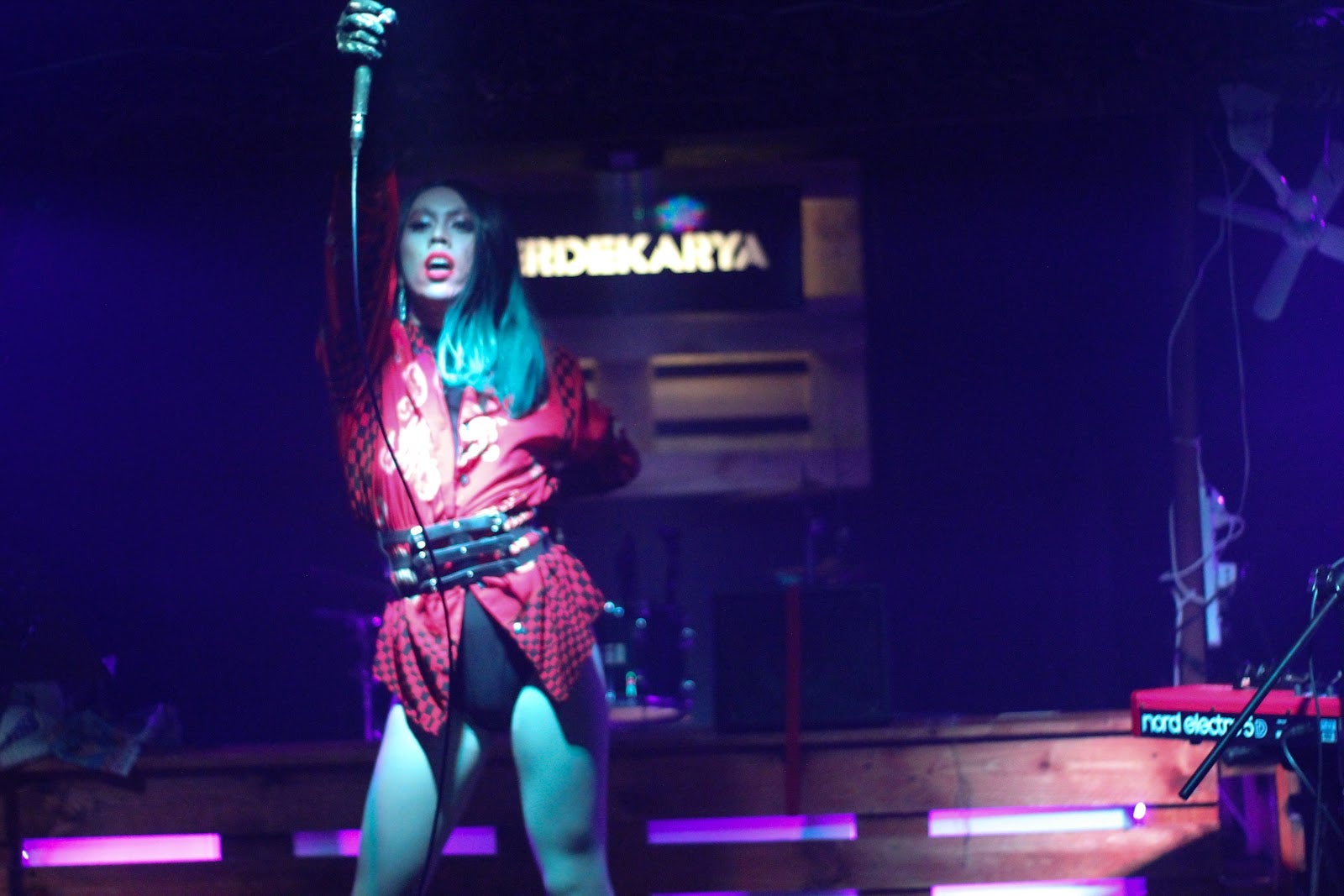
Kumela performing in “everybody nose”
The challenges of being a drag queen
Each time I perform, I am always afraid that there would be a police raid. It is something we all have to worry about each time we step onto the stage.
I don’t feel safe in my country because of this. For people like me, security is only an imagination and not something real.
I’m not given the freedom by law to be who I am and love who I want. I’ll only feel safe when I am no longer afraid of prosecution.
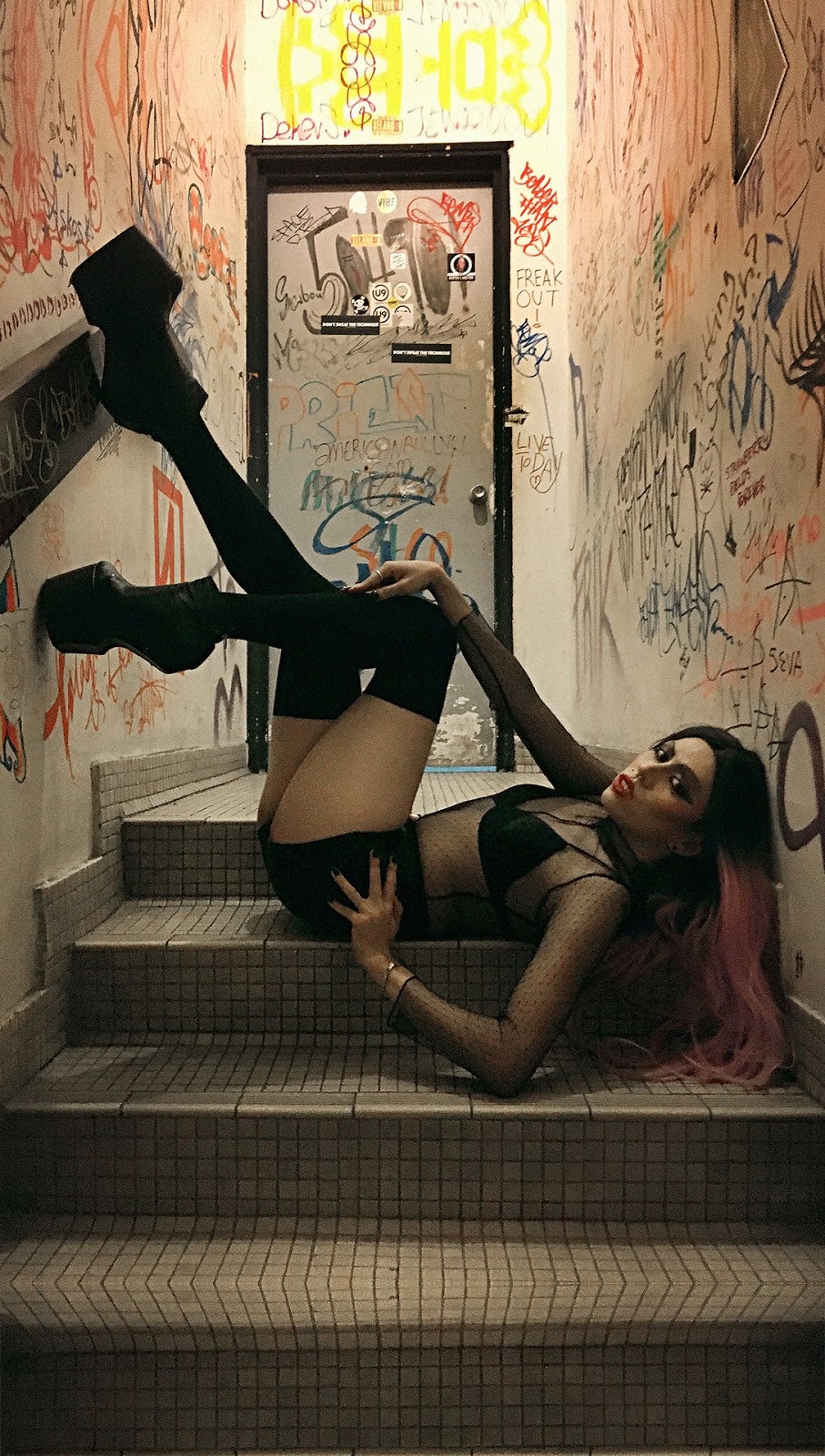
Taken by haus of rn
Once in 2017, a religious party found my and my partner’s Instagram.
They went to the bar that we do our parties and showed my profile to the bar owner to ask me where I am. Thankfully, it was during Ramadan month, and we do not do parties that month. So, the bar owner told them (truthfully) that there were no such things held in the bar.
It was scary and we stayed low for a couple of months and relocated somewhere more discreet.
While the law for drag parties is very grey for non-muslims, Islamic law clearly states that cross-dressing is banned for Muslims.
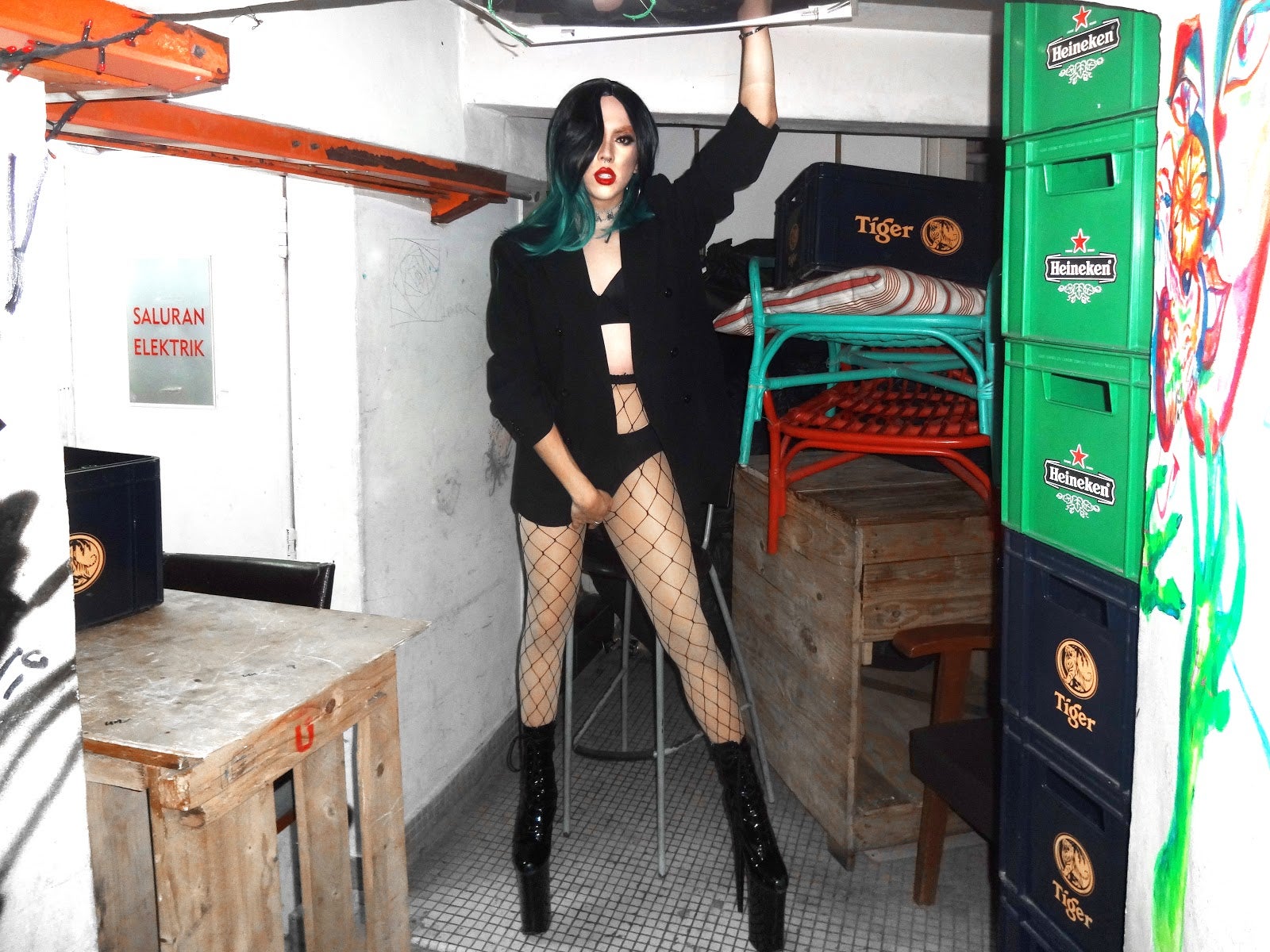
Taken by haus of rn
Other than that, I also get weird messages I get from people on Instagram in the Kumela Kumslut account.
I get random video calls or messages like “Hi baby.” I get that my character is very sexual but I think people mistake it as I am ‘easy’ or an escort.
There has been one time, I got sexually harassed during one of my shows. This man looked high on drugs and started touching me inappropriately (read: groping me) while I was dancing on stage with the other queens.
It made me uncomfortable, so I told one of the bouncers about it and he was instantly kicked out of the party.
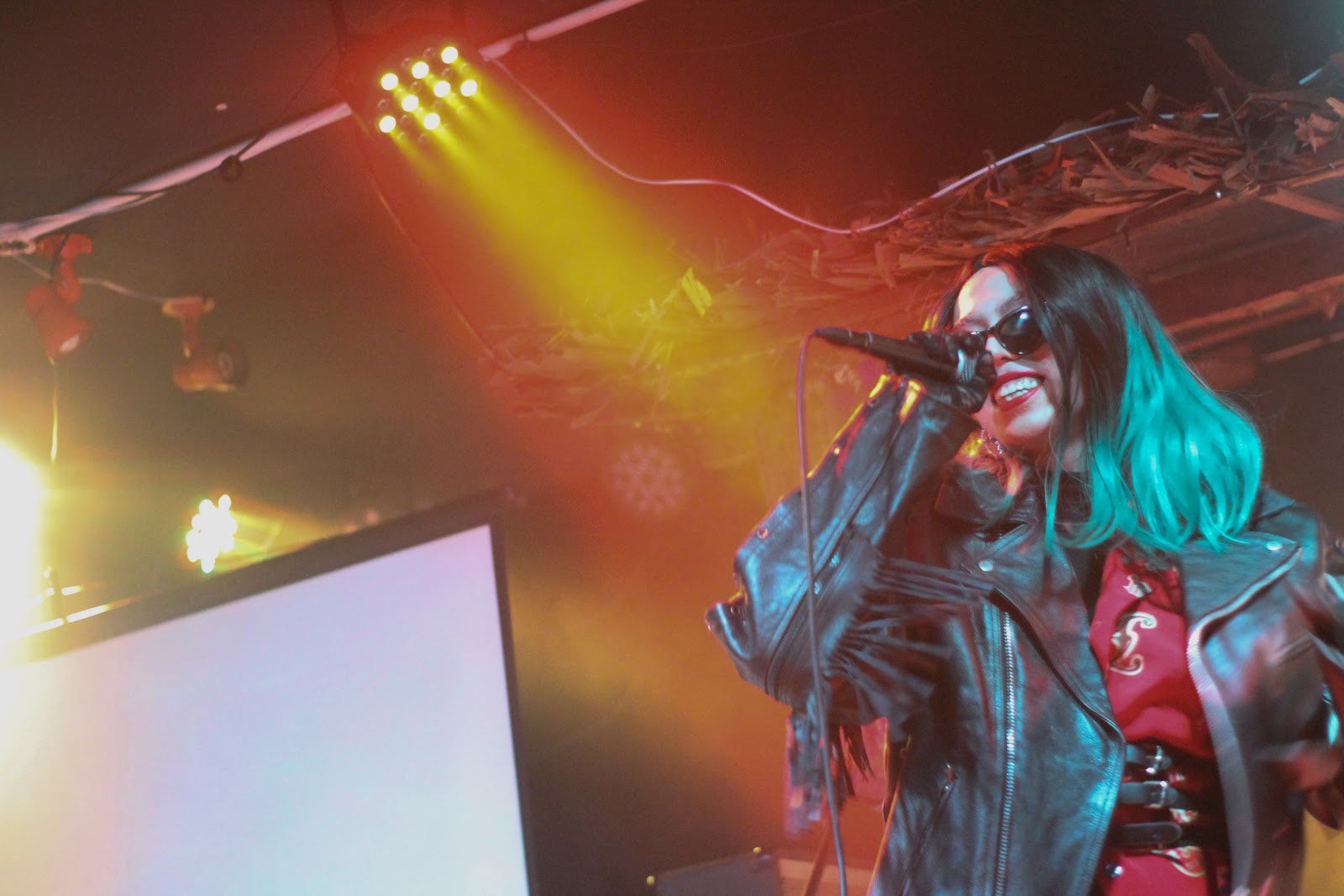
Taken in everybody nose
I was not the only one he was touching, as he’d tried to touch every other drag queen present.
You should not be touching the drag queens or anyone else without their consent, no matter what they are wearing or how they’re acting. Boundaries are important. A drag queen’s choice of attire or behaviour is not an invitation to sexual harassment.
The biggest misconceptions about drag are that we are all transgender
People often think that because I am dressed like a woman, I am one. They fail to realise what I am wearing does not identify my gender.
Just because I am a man wearing feminine clothes does not mean I want to transition. Being a drag queen is an art, a character. Kumela Kumslut is my alter ego, but it’s not me.
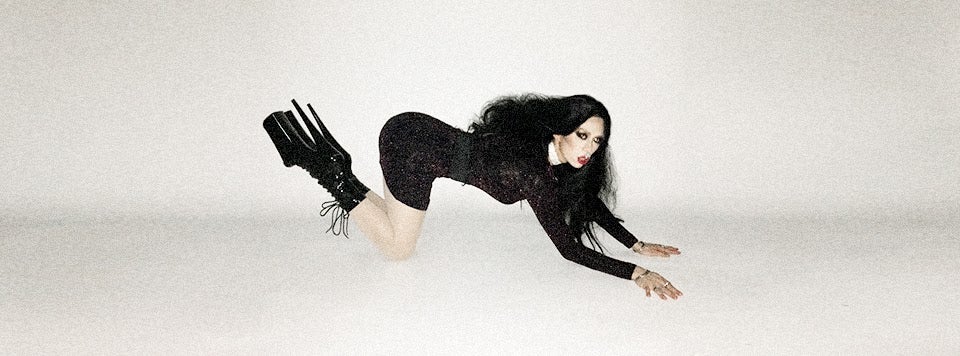
Taken by haus of rn
It’s something fun and lighthearted but people often perceive it as horrible and evil. The whole party just radiates love and everyone is themselves.
If you think about it, drag queens are just like fabulous clowns. Clowns wear makeup and wigs and do their performance just like us.
It’s just that clowns are supposed to be comedic while drag is more expressive. However, clowns are accepted in society but we are not.
Drag culture expresses art and our only motive is to spread love.
What I hope during my performance is that the audience feels like they belong somewhere too
Drag has always been a form of protest against an unaccepting and conservative society. Drag is mean to entertain but ultimately, it’s also to educate and spread the message of love.
Drag performance is an art of self-expression in the most authentic and freeing form. Each performance sends a message that I want to convey to my audience in every performance I do.
My message is: “Practice self-love.” I preach this to liberate the youths who don’t feel like themselves or feel like they do not belong.
A lot of the youth that attend our parties often feel like they are misfits that don’t belong anyway. They feel like they are not accepted anywhere, because of their sexuality or gender.
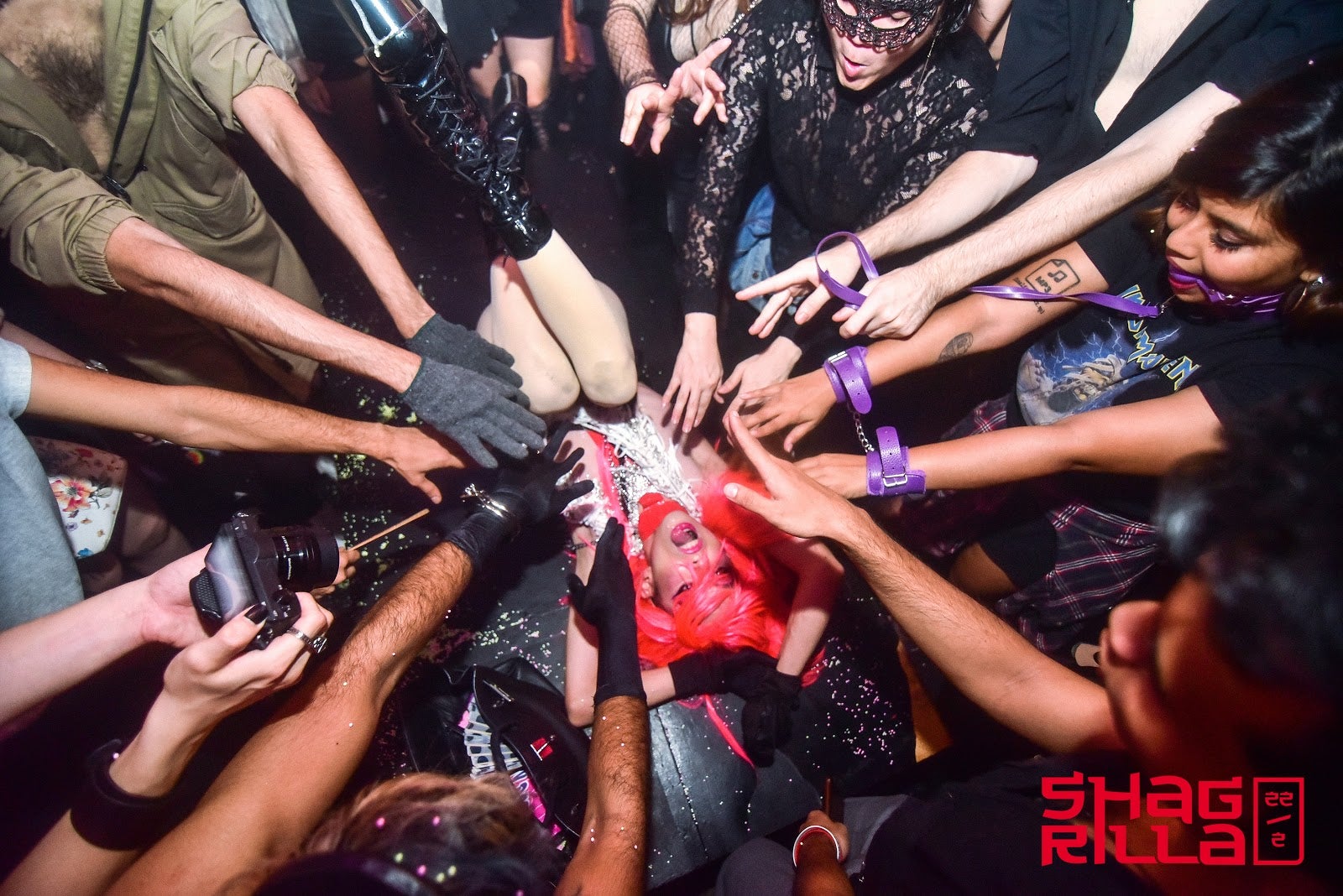
Taken in shagrilla
I want my audience to feel like they are accepted, no matter if they are straight, gay, non-binary, or transgender. I want them to know they can be anything they want to be. I hope to inspire more youth to become drag performers.
I think it’s important to create these LBGT-friendly spaces ,because they have nowhere else to go. They don’t often feel safe going to other clubs because they are often seen as sexual deviants, or freaks.
When we do these parties, we often prioritize them since they never are in other places. We have to look after each other.
It’s unfair because we are treated very inhumanely for something so innocent. Everyone deserves to be loved but we live in a place that does not allow that and it can only change if people want to change.
Now, I am a drag queen and have released my own song, called Sünshine.
I have had some people who have come up and told me that I have inspired them, that they feel like they can come out of their shell. Now, some of them are drag queens that I perform alongside.
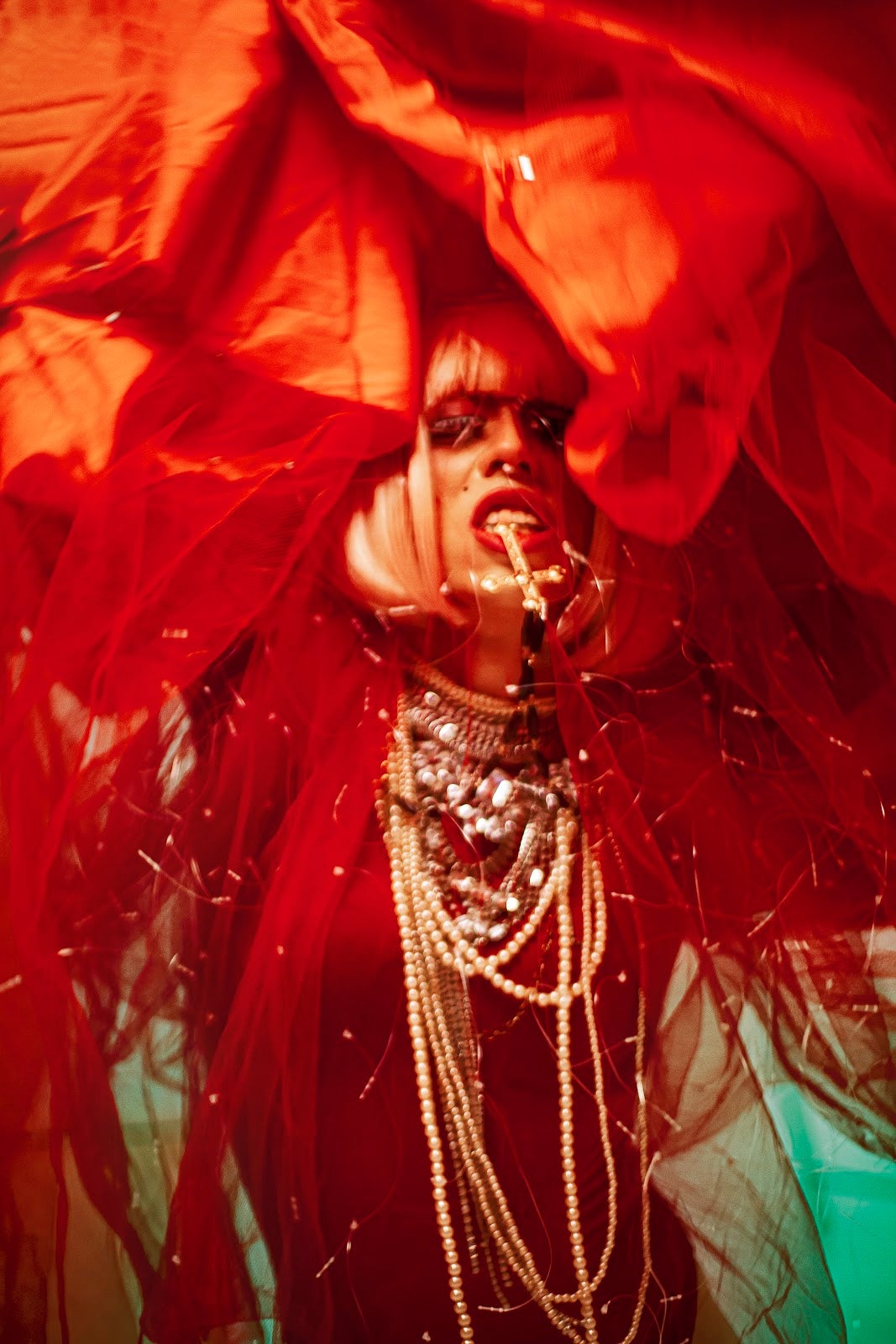
Taken by daniel adams photography
Usually, the people who discriminate against us are people who don’t understand us, but never take the initiative to learn.
They don’t surround themselves with people who they do not understand. But despite that, I have seen progress and hope to see bigger changes in the future. Nowadays knowledge on every subject is accessible on the internet. It’s only whether you’re willing to educate yourself on it.
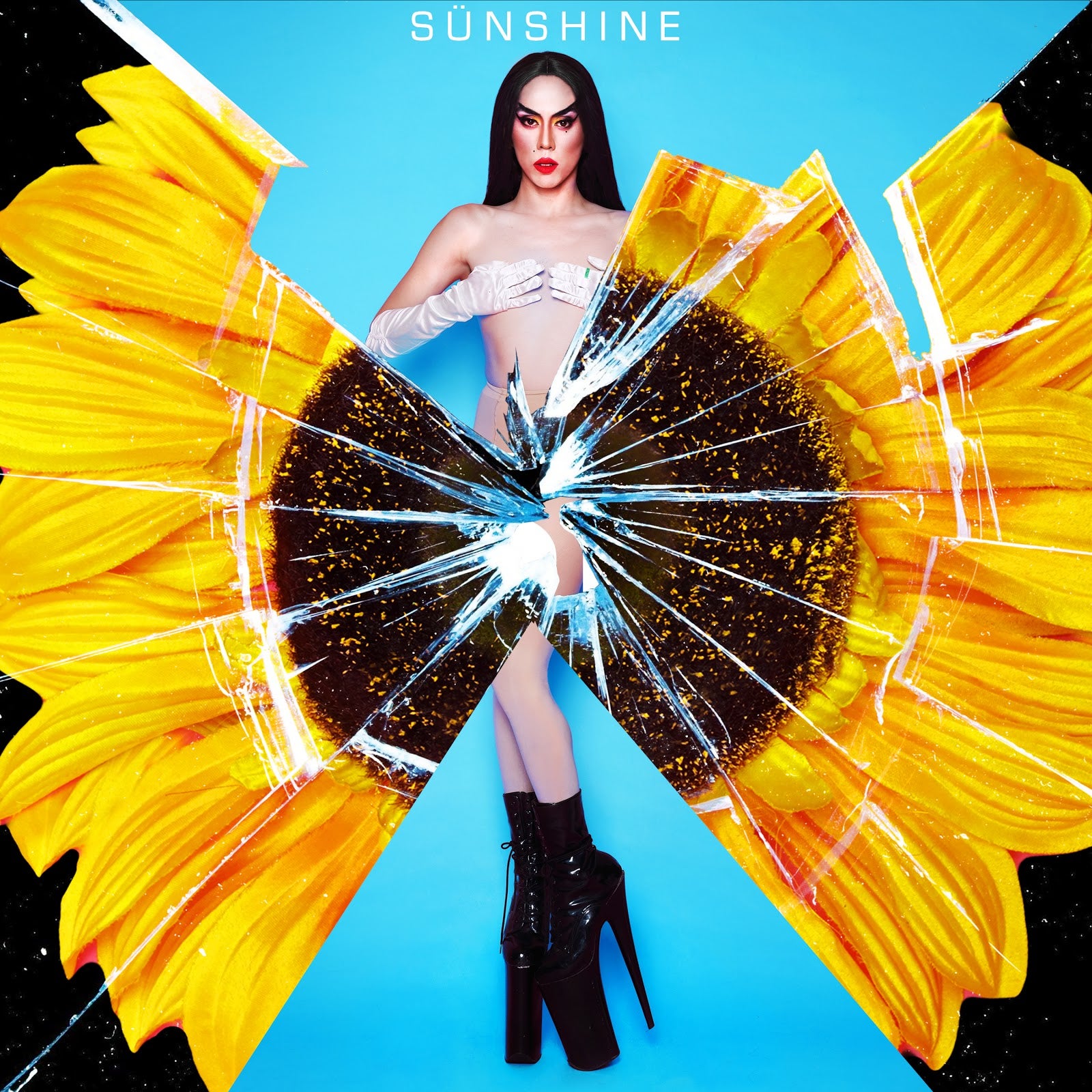
As of today, I’m happy to say that in Malaysia, we have a younger generation of drag queens who continue to push the boundaries of self-expression, and acceptance.
Spreading the message of love is meant to be shared.
For more stories like this, read: Coming out of the Closet: A Transgender Man’s Experience And My Family Could Not Accept That I Was A Transgender Man, So I Went To Thailand To Have The Operation Alone
If you like what you read, follow us on Facebook & Instagram.
For more information about drag, LGBT, and why social acceptance is important for them read these resources:
- Defining LGBT
- Increasing Tolerance For The LBGT Community
- The link Between Societal Acceptance and LGBTQ Suicide Rates
You might also like
More from Real People
‘A RM100 fee cost a company 5 years of revenue’ shares M’sian
This story is about a Malaysian who learned that bureaucracy can be defeated simply by not arguing with it.A billing …
‘I quiet-quit, upskilled, and tripled my salary,’ shares M’sian engineer
This story is about a Malaysian who learned that loyalty without leverage leads nowhere in the corporate world.After years of …
‘I did everything right, and it still wasn’t enough’ shares M’sian graduate
This story is about a Malaysian graduate navigating big dreams in a job market where a degree no longer guarantees …






